IFLA WLIC 2023: Day Three Highlights
24 August 2023

Highlights from Day Three of IFLA WLIC 2023
Global Emerging Leaders Delivering Development: A Roadmap for Realising Libraries’ Potential
What stands between us and success? What challenges do we need to overcome, both in our own field, and in our work with governments and partners? Where should we start?
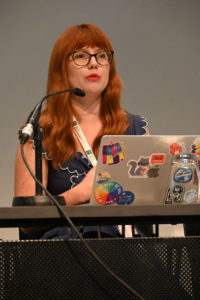
The second of our two Emerging Leaders sessions took place on Wednesday, focused on identifying what IFLA needs to do to answer some of these questions and increase our impact on the societies we serve.
Bryan Boy Cortez (Philippines), Mohd Ismail Abadin (Malaysia), Xiaofang Zhang (China), Zoe Dunlop (Germany), Evie Cordell (United States), Vivian Ampsonah (Ghana) and Waleed Ahmed (Turkey) and Liudmilla Diadyk (Ukraine) all took part, sharing their own ideas, as a basis for our Trend Report Update 2023.
Some of the topics discussed include the ever-changing perceptions of libraries, raising greater awareness of the equality impacts of what we do, more use of digital technologies, more favourable legal frameworks, and reasserting what it means to have universal, community-orientated services.
Photos from the session are available on our Flickr.
Meet people of WLIC 2023: vox pop with delegates from Taiwan, China
Throughout the week, WLIC 2023 social media volunteers are capturing delegates in a series of short video interviews (vox pops). Here’s a vox pop with delegates from Taiwan, China.
Stay tuned for more vox pops in the coming days on our YouTube playlist!
The Artificially Intelligent Librarian: threat or chance?
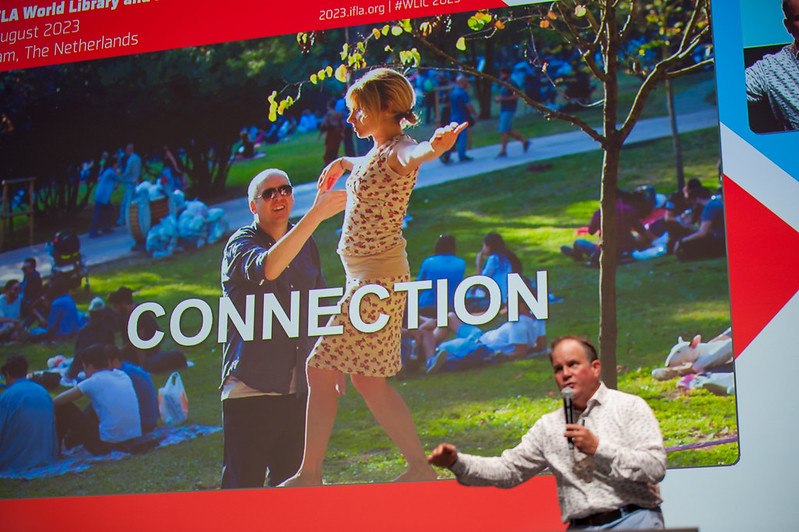
“What is AI? And what is intelligence on its own? For me, that’s humour. Our keynote speakers this morning are a good example of that. They will give us a wider horizon on the topic AI and link the digital world to the human.”
IFLA President Barbara Lison
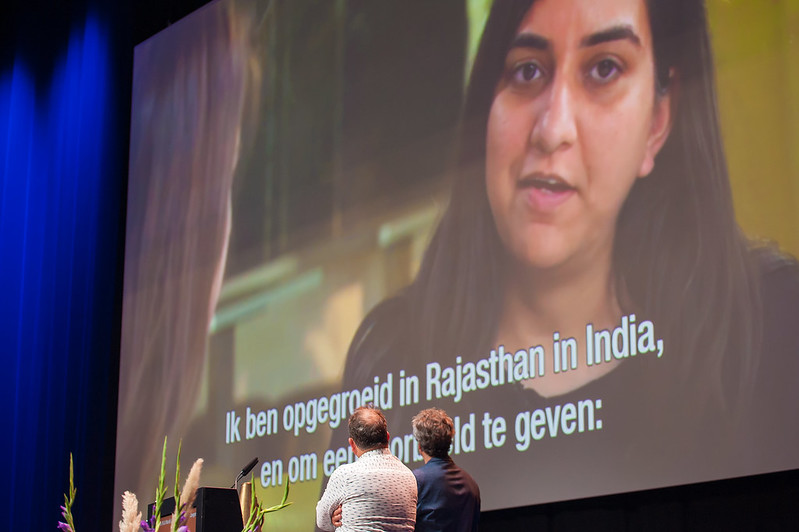
“AI is here to stay. It should be all inclusive for everyone. Libraries have a role in this. Libraries can build trust and connection. It’s important to make AI inspiring and fun!”
Erik Boekesteijn
IFLA announces Regional Offices 2024-26
We are happy to announce that our Governing Board has agreed on the institutions that will host our Regional Offices in 2024-2026 for Asia-Oceania, Latin America and the Caribbean, the Middle East and North Africa, and Sub-Saharan Africa.
IFLA’s Regional Offices have a wide and important role in our wider work to strengthen regional and national library fields. They are often the first point of conduct for our members, responding to questions, and providing critical information support.
Following a call for candidates open between May and July 2023, the IFLA Governing Board therefore has chosen the following as Regional Offices for the regions indicated:
- Asia Oceania: National Library Board, Singapore
- Latin America and the Caribbean: Library of Congress of the Nation, Argentina
- Middle East and North Africa: Qatar National Library, Qatar
- Sub-Saharan Africa: University of South Africa, South Africa
In particular, this is the first time that we have had a Middle East and North Africa Regional Office, in line with our broader effort to build up our presence and ability to deliver in the regions. We are grateful to the Qatar National Library and all those who applied.
The Regional Offices will collaborate with our Regional Division Committees, as well as IFLA Headquarters in order to develop action plans for the coming year.
We look forward to working with them in the years to come.
eBooks
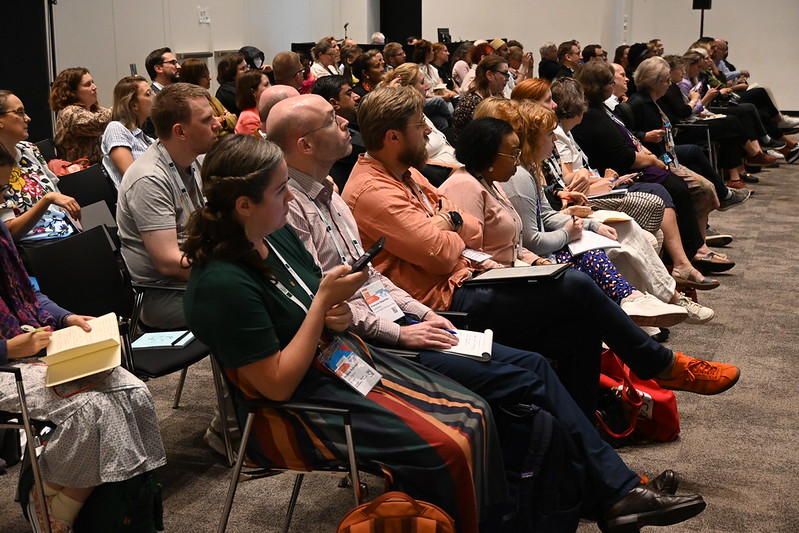
The eBooks session featured experts from a variety of library types to discuss the current state of digital lending.
Mikkel Christoffersen of the Copenhagen Libraries described the challenges for libraries paying high prices for restricted eBooks, saying 40% of their users use them only digitally. Christoffersen argued strongly for the creation of an international collaborative digital library.
Stuart Hamilton, president of the National Authorities on Public Libraries in Europe, discussed the massive increase in digital use during the COVID-19 pandemic. Hamilton shared that libraries in Ireland have started conversations consumer protection agencies in Ireland regarding the unfairness of paying over three times the amount they would pay for a print book.
Ben White, representing the Knowledge Rights 21 programme, talked about their efforts to create evidence-based arguments for revising European law around copyright and regulating markets more effectively. White encouraged attendees to sign the Library eBook Pledge to send a message to publishers about the need for fair agreements.
The City of Helsinki’s Anna Tuomikoski shared information about Finland’s national digital library collection. The eLibrary staff are building an open source platform to host materials for libraries across Finland. The eLibrary will eventually be housed in the national library.
Paul Crosby shared information about the Untapped Project, a coalition of researchers, writers, librarians, and others working to make 161 Australian books digitally available, including those from early women writers, first nations writers, and local histories. Data showed that the project had a positive impact on the books’ sales was positive, with no evidence that the eBook lending project cannibalized sales.
The speakers agreed on the significant challenges associated with eBook pricing and access but shared excitement about moving forward together to make improvements.
WLIC 2023 Hubs ambassadors
IFLA is thrilled to bring a new perspective from its different regions to registered online attendees. The four Hubs around WLIC 2023 are designed to promote increased inclusion and participation from registered remote delegates.
The aim of the WLIC Hubs is to enable discussion among the delegates around topics of interest to all. The sessions provide an expert speaker (an “ambassador”) to start the conversation followed by the opportunity for questions, conversation and sharing amongst those attending the sessions. Throughout the week, we’ll be interviewing the ambassadors would will tell you a little about themselves and their work as a Hub ambassador.
Meet our Asia-Oceania hubs ambassador Sangeeta Kaul, who reports on the third day of the Conference!
See the rest of the interviews on our YouTube playlist.
IFLA General Assembly 2023
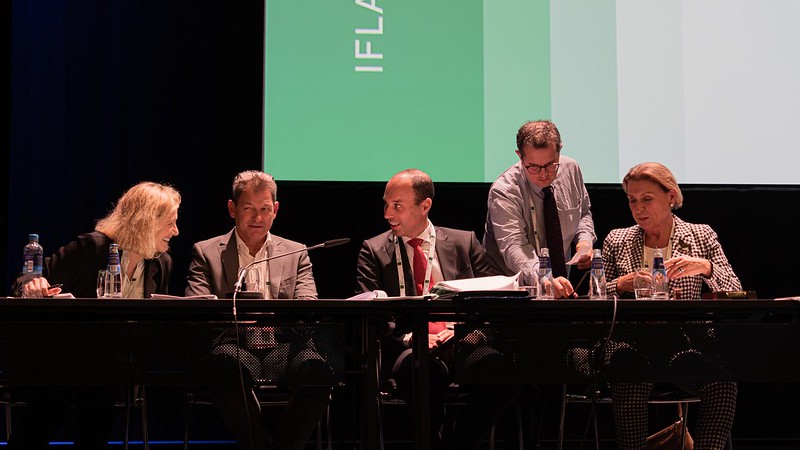
The IFLA General Assembly – the primary opportunity for our Members to take decisions about our Federation – was held in a hybrid format in Rotterdam and online on Wednesday 23 August and reconvenes the next day at the Closing Session. This year’s meeting included a lively and consequential exchange among participants, members and delegates. Members decided that the 2024 General Assembly should take place separately from the World Library and Information Congress.
IFLA General Assembly 2023 has just voted another motion to have the General Assembly 2024 in another place and on another date than #WLIC2024. IFLA President Barbara Lison has then asked IFLA Secretary General @SharonMemis to execute this decision.#WLIC2023 pic.twitter.com/G7RMHjwbUu
— Antoine Torrens-Montebello (@antoinetorrens) August 23, 2023
See the full agenda and download the latest IFLA Annual Report, previous General Assembly meeting minutes, and the most recent financial report – all of which were presented and discussed during the meeting – in the Convening Notice.
A full recording of the live-streamed session is available on our YouTube channel.
The Caribbean and Latin American Libraries work on SDGs. Building a sustainable future
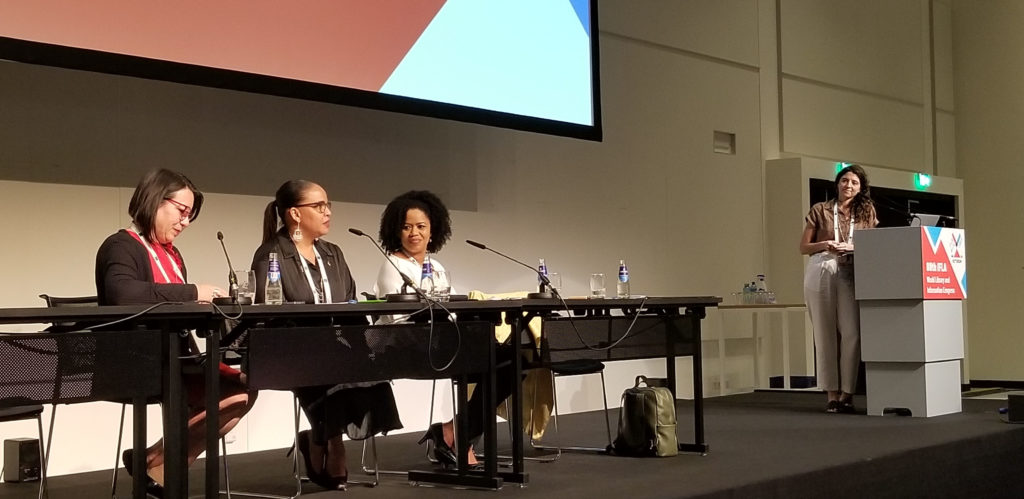
At the “Caribbean and Latin American Libraries work on SDGs” session on 22 August, the presenters started with the question: How are the libraries of the Caribbean and Latin America building a sustainable future?
Jeanette Lebron Ramos of the University of Puerto Rico described efforts from libraries across the region that supported information literacy efforts, skills building for young entrepreneurs, fighting hunger, and more. At the University of Puerto Rico, digitization projects preserve access to historic regional newspapers and magazines, preserving the rich cultural heritage of the area.
Deputy director of the National Library of Curaçao Yiannitzah-Sharimar Jacobus discussed efforts to use the United Nation’s Sustainable Development Goals to measure their progress and visualize the impact they have on their community. While challenges such as high cost of living and job insecurity lead to isolation, opportunities such as new technologies provide a catalyst for transformation to focus on the needs of users. The National Library of Curaçao’s educational efforts emphasize lifelong learning and the building of 21st-century skills, as well as reducing inequalities with projects such as working with incarcerated people.
Jessica Carvajal Lobos, counsellor of the Nacional Colegio de Bibliotecarios de Chile, shared the impact of COVID-19 on inequality in Chile. The Nacional Colegio de Bibliotecarios has coordinated efforts to improve accessibility and digital literacy, including advocacy and promoting events such as Día de libro and LGBTI pride festivals.
The session highlighted the vibrant and exciting work being done by libraries in Latin America and the Caribbean to build a sustainable future.
IFLA WLIC 2023 on Flickr
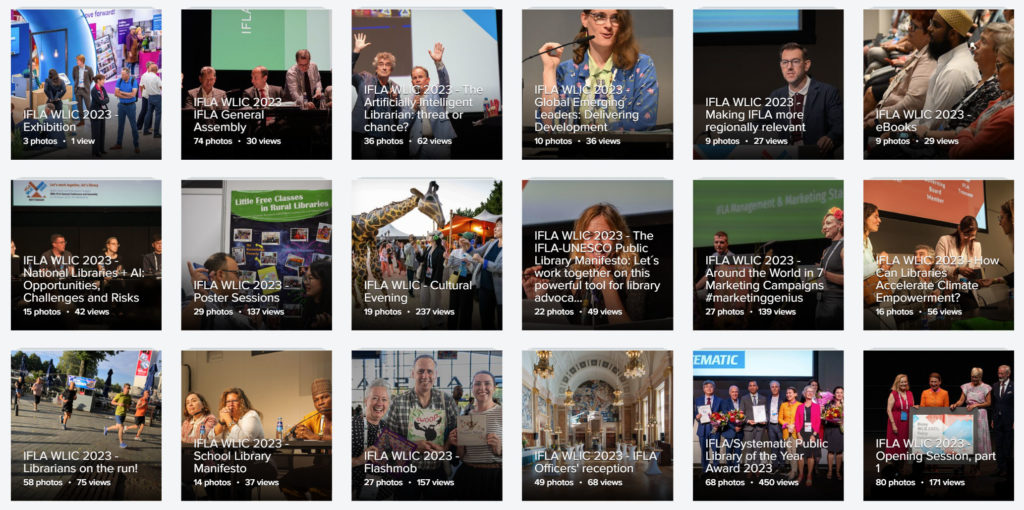
Be sure to check out our expanding collection of WLIC 2023 photos on Flickr!